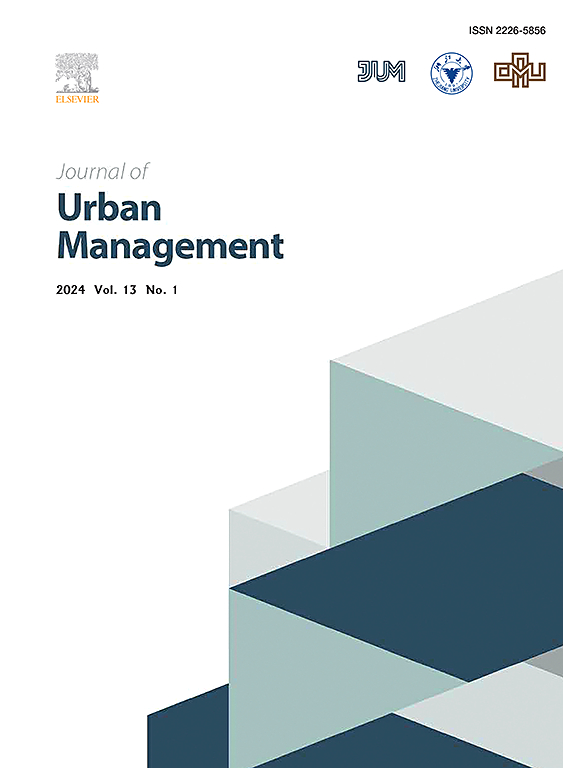协同城市和交通治理:来自迪拜和拉合尔的见解
IF 5
2区 社会学
Q1 URBAN STUDIES
引用次数: 0
摘要
中东和北非(MENA)和南亚(SA)地区的城市中心面临着城市扩张、低密度发展和道路基础设施大量投资等挑战,而治理碎片化和政治不稳定又加剧了这些挑战。本研究采用定性方法,利用对迪拜和拉合尔决策者的半结构化访谈,确定和分析影响城市管理和交通治理的关键因素。运用扎根理论比较两个城市不同的治理挑战、政策重点和战略规划方法。主要研究结果表明,迪拜从有效的决策、清晰的战略愿景、长期的交通规划和结构化的项目实施中受益匪浅。相比之下,拉合尔面临着多个规划机构角色重叠、总体规划审批延迟以及实施框架薄弱等问题,所有这些都导致了不受控制的横向扩张和以道路为中心的发展模式。本文通过提出概念性治理框架和成熟度模型来推进城市治理文献,为发展中城市争取更可持续和公平的城市流动性提供了可操作的见解。本文章由计算机程序翻译,如有差异,请以英文原文为准。
Synergizing urban and mobility governance: Insights from Dubai and Lahore
Urban centers in the Middle East and North Africa (MENA) and South Asian (SA) regions face challenges like urban sprawl, low-density development, and heavy investment in road infrastructure, worsened by fragmented governance and political instability. This study adopts a qualitative approach, utilizing semi-structured interviews with decision-makers in Dubai and Lahore, to identify and analyze key factors influencing urban management and mobility governance. Grounded theory is applied to compare the distinct governance challenges, policy priorities, and strategic planning approaches of the two cities. Key findings show that that Dubai immensely benefits from effective decision-making, a clear strategic vision, long-term transport planning, and structured program implementation. In contrast, Lahore grapples with overlapping roles among multiple planning agencies, delays in Master Plan approvals, and weak implementation frameworks, all of which contribute to uncontrolled horizontal expansion and a road-centric development model. This paper advances the urban governance literature by proposing a conceptual governance framework and a maturity model offering actionable insights for developing cities striving for more sustainable and equitable urban mobility.
求助全文
通过发布文献求助,成功后即可免费获取论文全文。
去求助
来源期刊

Journal of Urban Management
URBAN STUDIES-
CiteScore
9.50
自引率
4.90%
发文量
45
审稿时长
65 days
期刊介绍:
Journal of Urban Management (JUM) is the Official Journal of Zhejiang University and the Chinese Association of Urban Management, an international, peer-reviewed open access journal covering planning, administering, regulating, and governing urban complexity.
JUM has its two-fold aims set to integrate the studies across fields in urban planning and management, as well as to provide a more holistic perspective on problem solving.
1) Explore innovative management skills for taming thorny problems that arise with global urbanization
2) Provide a platform to deal with urban affairs whose solutions must be looked at from an interdisciplinary perspective.
 求助内容:
求助内容: 应助结果提醒方式:
应助结果提醒方式:


